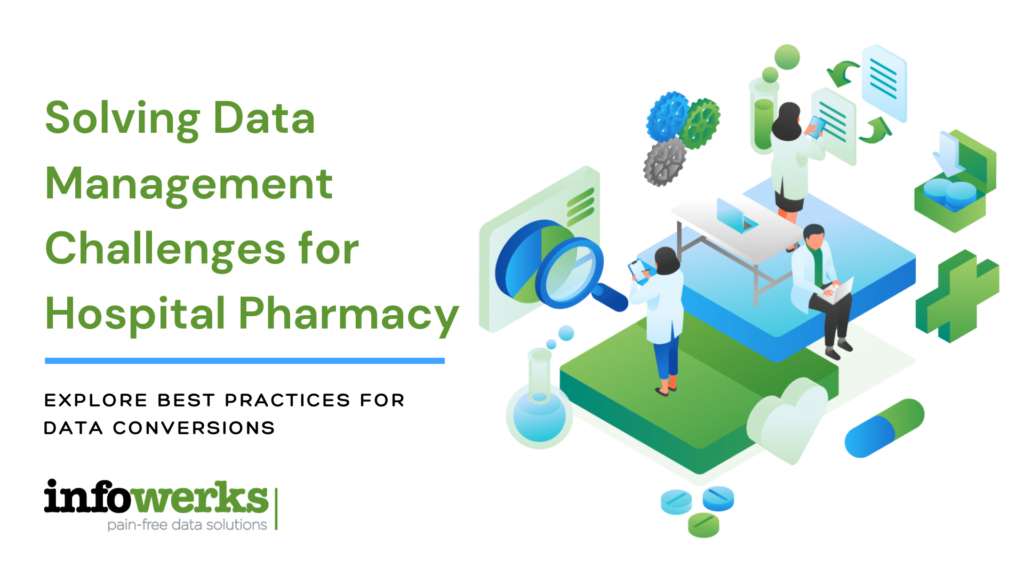What Are the Best Practices for Data Management for Hospital Pharmacy?
January 14th, 2020
Explore our new eBook curated specifically for hospital pharmacy that includes best practices for data management and data conversions.

Hospital pharmacy has unique data challenges. Like any organization, data is one of your most valuable assets. Being able to access it how and when you need is critical. And that can be compromised when you choose to change pharmacy systems.
Hospital Pharmacy Data Conversion Are Not a One Size Fits All
The process of converting is much more complex than taking one set of data and transferring it into a new platform. Many different factors impact the conversion. For example, some fields are consistent across all platforms, some are not.
Many systems are used independently, making migrations tricky. There is also the need for many of these systems to work interoperability with other systems, like EHRs. Further, the priorities of the pharmacy may be different based on the size. Larger health systems have more data and possibly more customization versus community hospitals.
Smooth Conversions Support Better Patient Care
Hospital pharmacy data is critical to improving patient care and ensuring they receive the right medications. That’s why it’s crucial to work with a data conversion partner that understands your operating model.
Overcoming Challenges in Data Management
As a leader and pioneer in pharmacy data management, we’ve helped thousands of hospital pharmacies successfully convert their data. In our over two decades, we’ve learned a lot and want to share it with you. We’ve created a new guide, “Solving Data Management Challenges for Hospital Pharmacy.”
In the eBook, you’ll learn:
- Data conversion best practices
- Data fields that can cause problems
- Questions to ask your data vendor
- Why you should purge and archive before converting
- Security and compliance considerations
Read the eBook today. If you have questions about data conversions, contact us to learn more.